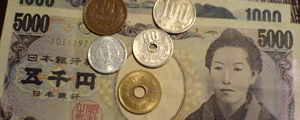
TOKYO/SINGAPORE — The dollar slipped to a seven-week low against the yen yesterday as a sell-off in emerging market currencies late last week prompted investors to seek shelter in the safe-haven Japanese currency.
Reuters
The dollar fell as low as 101,77 yen, its lowest level since early December, and last stood at 102,36 yen, steady from late United States levels last week. It has fallen about 2,1% in the past three sessions.
“It was all driven by stop-loss selling in thin, pre-Tokyo markets,” said Jeffrey Halley, FX trader for Saxo Capital Markets in Singapore, referring to the dollar’s earlier drop to a seven-week low against the yen.
“The market is definitely focusing on EM, particularly the weak EM countries,” he said.
Halley said, however, that US names and Japanese importers have been good buyers of the dollar on dips, adding that the dollar seemed likely to be supported at levels near 101,80 yen for now.
Emerging market (EM) currencies from Turkey to Argentine were dumped last week, making investors nervous that the shakeout in markets could lead to a full-blown financial crisis.
Some of the selling in emerging markets also had its roots in domestic factors. In Turkey, political concerns had a negative impact on markets, while Argentina abandoned support of its peso on the open market last week, sending the currency skidding to its biggest drop since the 2002 financial crisis.
- Chamisa under fire over US$120K donation
- Mavhunga puts DeMbare into Chibuku quarterfinals
- Pension funds bet on Cabora Bassa oilfields
- Councils defy govt fire tender directive
Keep Reading
However, an underlying concern was that tighter US monetary policy could encourage a shift of funds back to the United States from emerging markets that had enjoyed a flood of cheap money from the Federal Reserve’s money printing programme, known as quantitative easing.
In addition, tightening credit conditions in China as the government seeks to curb growth in high-risk lending heightened fears about a possible slowdown in Asia’s economic powerhouse.
“Market positioning also likely played a role in the volatile price action. For some currencies, positioning has become slightly stretched, particularly in the yen,” Barclays analysts said in a note to clients.
“In a context of market liquidation of the magnitude we witnessed on Friday, it is logical that some of the previously strong performing trades were unwound,” they said.
Indeed, data from the US Commodity Futures Trading Commission showed speculators’ net selling in yen futures traded in Chicago remained high. As of last Tuesday, net yen short positions stood at 114 961 contracts, near a 6-1/2-year high of 143 822 contracts set late December.
Investors had sold the yen heavily on the notion that a cocktail of a solid global recovery and Japan’s hyper-easy monetary policy will spur yen-carry trades — borrowing the yen and converting it to higher-yielding currencies, many of them in emerging markets.











